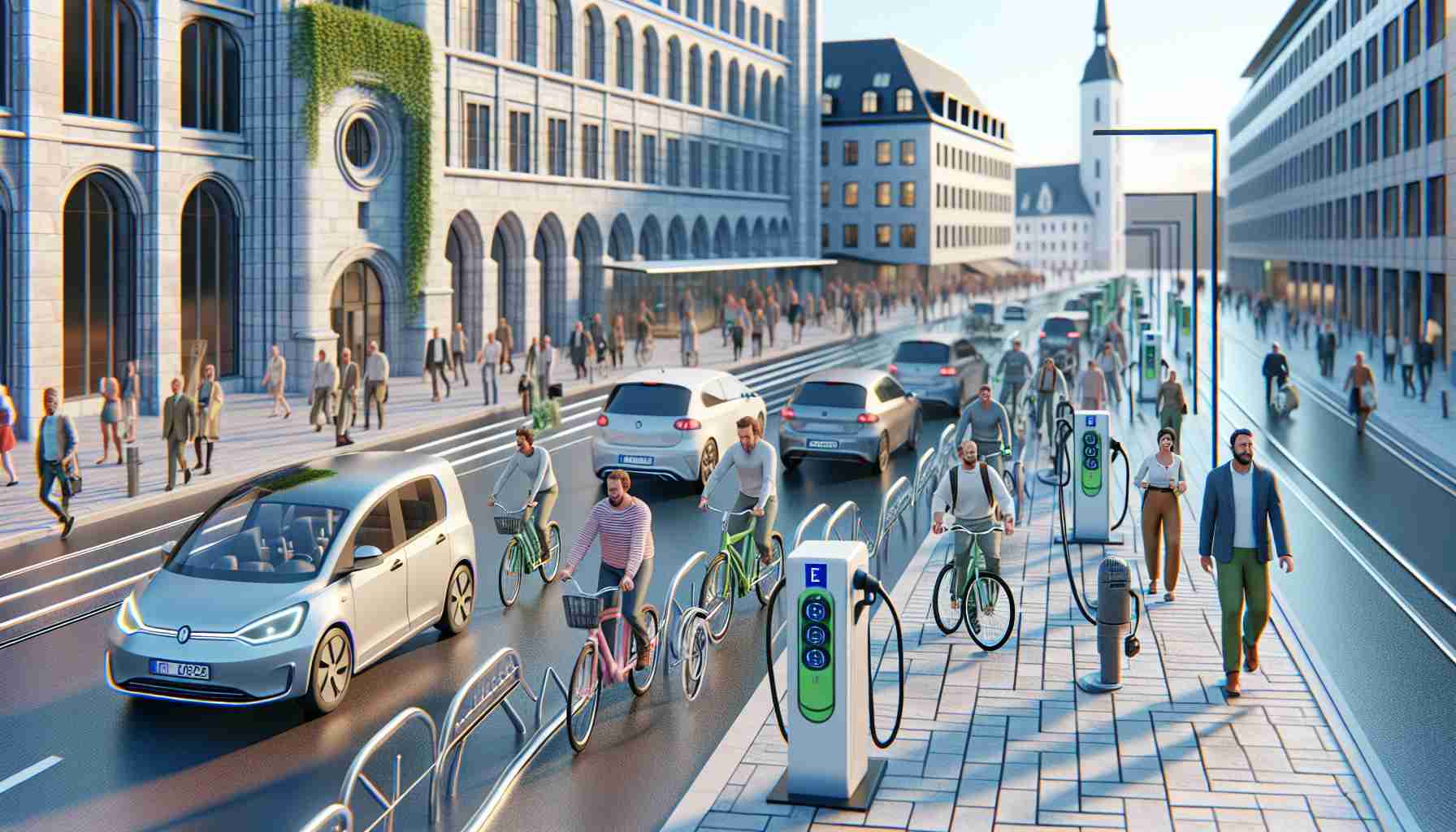Europe’s transition towards greener transportation is well underway, but it is clear that significant changes are still needed. While bikes have gained popularity and outnumber cars in terms of ownership in certain European countries, cars still dominate as the primary mode of transport across the continent. However, there is reason to be optimistic as the shift towards electric vehicles and bicycles gains momentum.
Electric bicycles, or ebikes, are experiencing a surge in popularity, particularly in Germany where they have outsold regular bikes. Ebikes offer an attractive alternative to cars, allowing for easier and longer distance travel. Additionally, they contribute to a less sweaty commute, making them a compelling choice for many individuals. The rise of electric vehicles, both cars and bikes, can be attributed to stricter regulations implemented by the EU and European countries. These regulations, such as CO2 emission standards and the modernization of rail lines, have prompted a shift towards electrification.
While the move towards electric vehicles is a positive step in reducing carbon emissions, there is a strong argument for reducing car usage altogether. Car usage comes with significant costs, including emissions, urban space usage, and healthcare expenses due to a sedentary lifestyle. Therefore, it is crucial to not only change the way vehicles are powered but also how they are utilized.
The European Declaration on Cycling is a noteworthy initiative aimed at promoting and supporting cycling throughout Europe. However, experts argue that stronger regulations are necessary for cycling to surpass car usage. The declaration sets out guidelines for infrastructure development, cycling networks, and space allocation, but it lacks legal binding.
To achieve the ambitious goal of making Europe bike-centric, stricter regulations and policies are needed. Companies like Cowboy, an electric bike manufacturer, emphasize the importance of creating an environment that encourages and prioritizes cycling. The combination of electric vehicles, especially bikes, and improved infrastructure will be key in facilitating a significant shift away from car-centric transportation.
As Europe grapples with the pressing need to address climate change, adopting a greener mode of transportation is critical. The rise of electric vehicles and the increasing popularity of bicycles indicate progress, but more substantial measures are necessary. By embracing and enforcing stricter regulations, Europe can pave the way for a sustainable, bike-centric future.
Europe’s transition towards greener transportation is not only driven by the popularity of electric vehicles and bicycles but also by the growing awareness of the need to reduce carbon emissions and promote sustainable modes of transportation. The rise of electric bicycles, or ebikes, is particularly notable in Germany, where they have outsold regular bikes. This surge in popularity can be attributed to several factors.
Firstly, ebikes offer an attractive alternative to cars, allowing for easier and longer distance travel. With the assistance of an electric motor, riders can travel further and tackle hilly terrain without exerting as much physical effort. For individuals looking to commute to work or run errands, ebikes provide a convenient and environmentally-friendly option.
In addition to their practicality, ebikes also contribute to a less sweaty commute. The electric motor helps riders maintain a steady speed without getting overheated or arriving at their destination with a drenched shirt. This aspect of ebikes has made them particularly appealing for urban commuters who want to arrive at work feeling fresh and presentable.
The shift towards electric vehicles, including both cars and bikes, has been further catalyzed by stricter regulations implemented by the European Union and individual European countries. These regulations, such as CO2 emission standards and the modernization of rail lines, have encouraged the adoption of electric vehicles as a means of reducing carbon emissions and promoting sustainable transportation options.
However, while the move towards electric vehicles is a positive step in reducing carbon emissions, there is a strong argument for reducing car usage altogether. The use of cars comes with significant costs, including emissions, urban space usage, and healthcare expenses due to a sedentary lifestyle. It is crucial to not only change the way vehicles are powered but also how they are utilized.
The European Declaration on Cycling is a noteworthy initiative aimed at promoting and supporting cycling throughout Europe. It sets out guidelines for infrastructure development, cycling networks, and space allocation. However, experts argue that stronger regulations are necessary for cycling to surpass car usage. The declaration lacks legal binding, and therefore, its impact on prioritizing cycling over car usage may be limited.
To achieve the ambitious goal of making Europe bike-centric, stricter regulations and policies must be implemented. Companies like Cowboy, an electric bike manufacturer, emphasize the importance of creating an environment that encourages and prioritizes cycling. This includes not only investing in improved infrastructure but also ensuring the availability of secure parking spaces for bicycles and the integration of cycling into urban planning.
In terms of market forecasts, the electric bike industry is expected to continue its growth trajectory. According to a report by Market Research Future, the global electric bike market is projected to reach a value of $27 billion by 2023, with Europe being a key market for electric bikes. The increasing popularity of electric bikes, coupled with government incentives and favorable regulations, is expected to drive this growth.
In conclusion, Europe’s transition towards greener transportation is well underway, with electric vehicles and bicycles gaining momentum. While the rise of electric vehicles, especially bikes, and the European Declaration on Cycling indicate progress, stricter regulations and policies are necessary to achieve a sustainable, bike-centric future. With the right combination of electric vehicles, improved infrastructure, and a shift in mindset towards reducing car usage, Europe can lead the way in promoting greener and more sustainable modes of transportation.
Related Links:
– Cowboy – Electric Bike Manufacturer
– Market Research Future – Electric Bike Market Forecast







